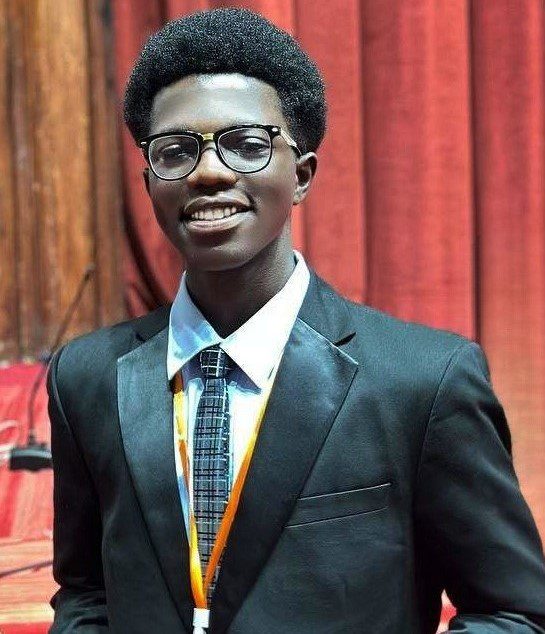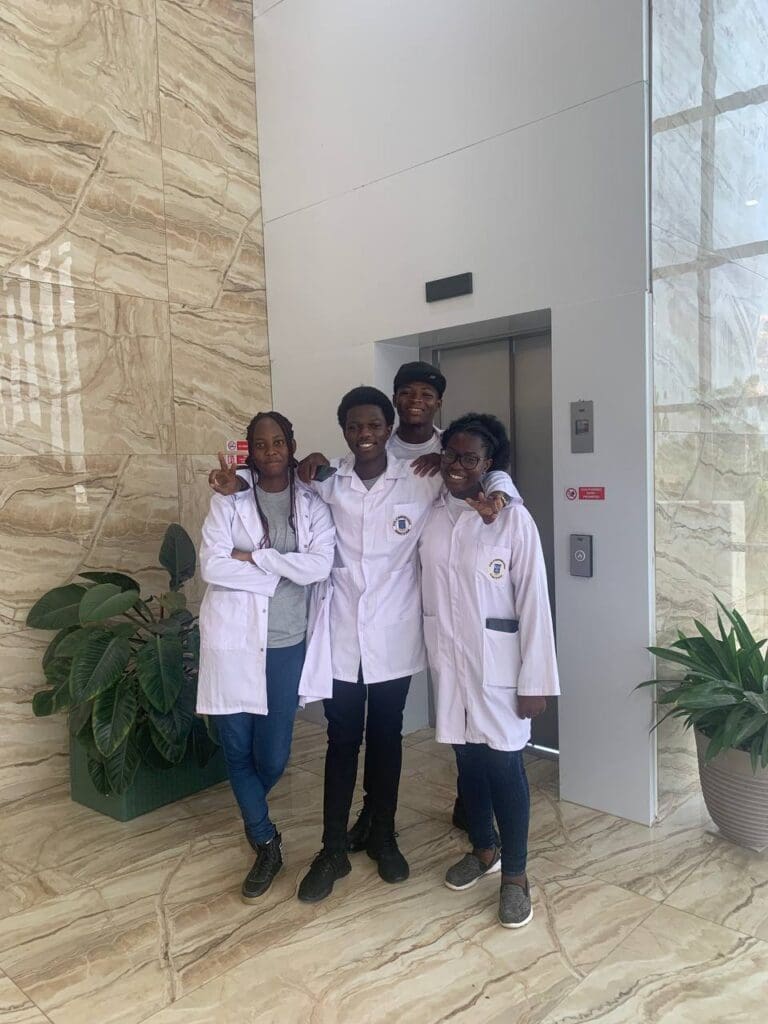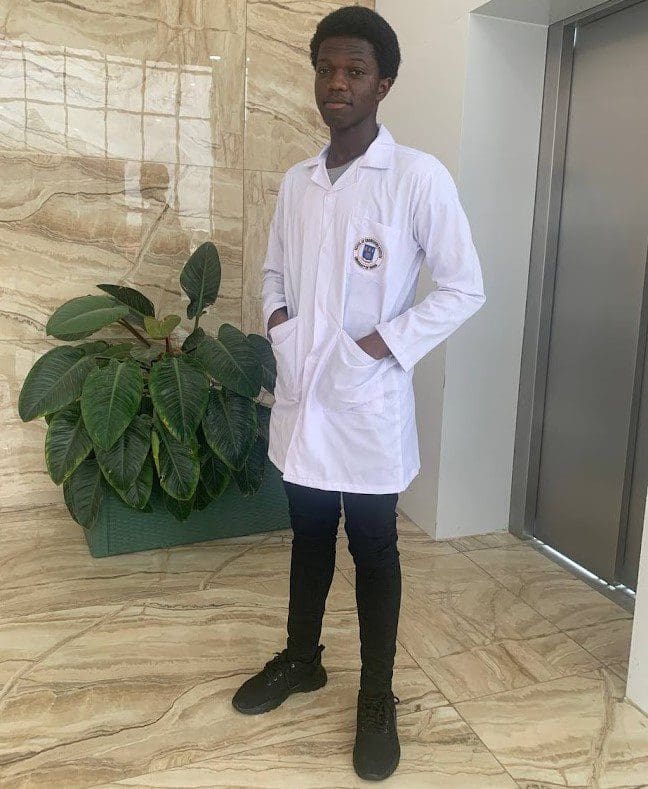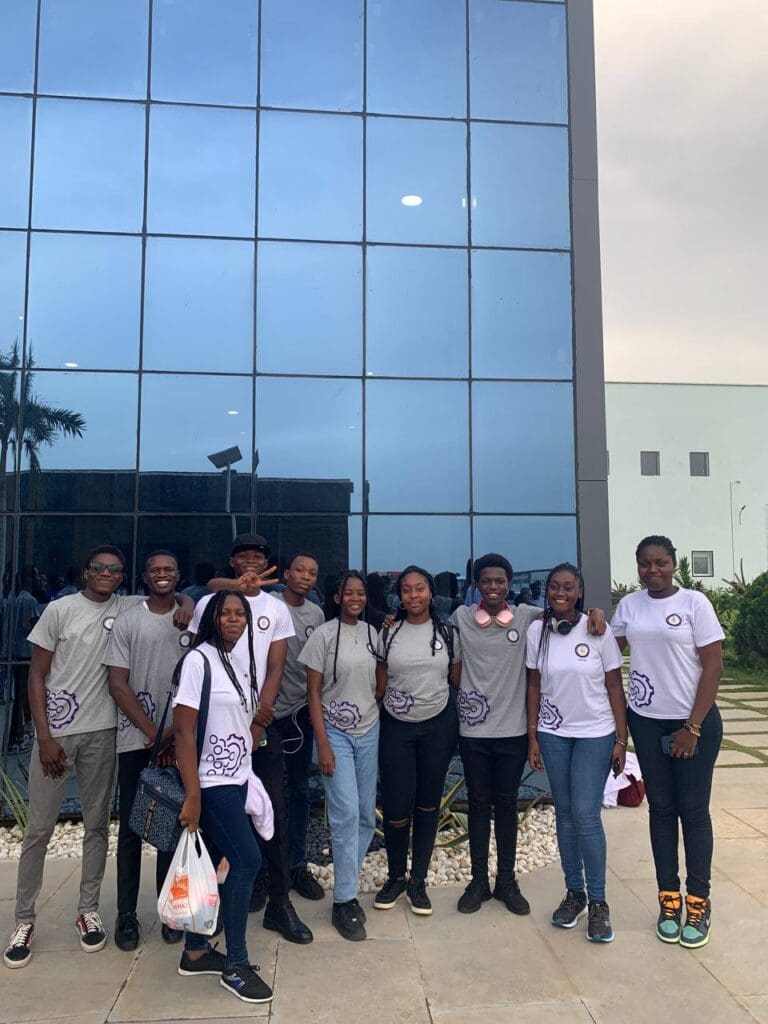Reasons to study biomedical engineering now
Samuel Danquah Ankapong is aiming to specialise in Medical Robotics and Artificial Intelligence. As well as studying engineering he volunteers for the Ghana Society of Biomedical Engineers and for the School of Engineering, University of Ghana. Samuel has a strong desire to contribute to the advancement of the biomedical engineering field, particularly in Ghana. In this article, he explains his career choices and gives the reasons to study Biomedical Engineering.


A Biomedical Engineering Student in Ghana – Samuel Danquah Ankapong
Background
Could you give a brief description of your background and what led you to study biomedical engineering? Were there any childhood interests which were a factor?
As a child, I had wanted to become a medical doctor. However, my interest in technology, specifically robotics, developed as an early high schooler, a little while after joining the Robotics Team of my high school. So, I researched courses and found that biomedical engineering would help me pursue my robotics vision whilst targeting the medical field.
Therefore, that’s why I pursued biomedical engineering.
Has there been a particular person at school who inspired you?
Mr. Richard Asiamah, an editorial assistant at the University of Ghana College of Basic and Applied Sciences, and a Computational Scientist.
Have you always liked fixing things? And helping people?
Yes, I have always enjoyed fixing things and as well I have the fondest memory of fixing broken electronic stuff. Most of the time, the issue was related to computers. In addition, I have dedicated myself to helping people with my best knowledge and skill.
Reasons to study Biomedical Engineering
Why would you suggest studying biomedical engineering to other young people?
Biomedical engineering is a highly intriguing field. It serves as a hub of innovation, where young minds can actively contribute to groundbreaking advancements in healthcare technology. One notable aspect of biomedical engineering is its multitude of subfields, offering individuals the opportunity to specialise. Furthermore, biomedical engineering provides excellent career prospects but also ensures job security.
If someone is at school now, what could they do to start to prepare for studying biomedical engineering?
I would encourage the person to build a strong foundation in subjects such as biology, physics, chemistry, and mathematics. They should also cultivate problem-solving skills. Additionally, they should engage in STEM-related activities to foster a passion for engineering, technology, and innovation.
Why in your opinion is it a good career?
I consider Biomedical Engineering to be a good career due to its close connection with technological advancement. As technology continues to advance, many are drawn to biomedical engineering with the aim of enhancing healthcare. In addition, the aftermath of COVID-19 has underscored the need for significant attention to technology in healthcare, and Biomedical Engineering plays a crucial role at its core.
What sort of personality traits are ideal for becoming a biomedical engineer?
I think that there are five key ones as follows.
The ability to think analytically.
Good teamwork ethics.
Ability to maximise productivity and good time management.
Open minded and curious.
Excellent communication skills.


Mentors and inspirations
Who have been your mentors and inspirations at different stages of your life?
My biggest inspiration is Dr Thomas Mensah, a notable inventor. His pioneering work in fibre optics and nanotechnology has shown me the importance of innovation and creativity in the field of technology. This has inspired me to do my very best to contribute to the improvement in healthcare technology.
IT – Machine learning and AI
When did your interest in IT start?
My interest in IT started as an early teen when I had my first laptop. From that moment on, I have been curious about how various computing devices work.
Why are you interested in machine learning?
I am deeply intrigued by machine learning due to its transformative potential. It has the capability to revolutionise many aspects of our lives, from improving medical diagnoses to enhancing medical robotics. Its ability to perform complex repetitive task is another lovely fact about machine learning.
How do you think machine learning, AI and AR will change biomedical engineering in the future?
AR has the potential to transform medical training and surgeries by providing real-time, interactive 3D visualizations, improving precision, and reducing risks. In addition, AI-driven robots can assist with surgical procedures, offering long lasting precision. Machine Learning would help biomedical engineers build sophisticated models to show medical diagnoses and other bio-computational activities.
How important is cybersecurity for biomedical engineers?
With the upsurge of various sophisticated medical devices which are linked to the internet, they are vulnerable to cyber-attack. This is then putting patients and their data at risk. Biomedical engineers strictly prioritise cyber security, employing secure coding, authentication, and encryption during design and deployment of medical devices.


Typical week
Can you describe your typical week and how you balance your time?
A typical weekday has lecture periods and practical sessions. In addition, I hold the positions of the Public Relations Officer for the Ghana Society of Biomedical Engineers and publicity committee member for the School of Engineering, University of Ghana. These positions require me to join at least three meeting sessions each week.
I mostly use the weekends to carry out some online courses to upgrade my skills.
In order to balance all these activities with I use productivity apps which help me to manage and apportion my time effectively for various activities.
How do you balance studying with your voluntary roles?
It requires me to have effective time management and prioritisation. I create an activity schedule and allocate specific time blocks for studying and volunteer commitments. I make sure to minimise distraction during studying sessions.


The future and reasons to study biomedical engineering further
What are you goals and ambitions for your future career?
My goal is to enter the MedTech industry after completing my graduate studies in Medical Engineering and Artificial Intelligence. This is because I aim to be involved with the manufacturing of advanced robotic surgical equipment.
Would you consider working in another country? And why?
I have a strong desire to contribute to the advancement of the biomedical engineering field, particularly in Ghana. So, working in another country may divert my efforts from this goal. I’m passionate about empowering the development of healthcare technology and infrastructure in Ghana, and I believe that my expertise can make a meaningful impact in this region.
Is there an area you would like to specialise in?
Medical Robotics and Artificial Intelligence.


The future of biomedical engineering in Africa
What are your hopes for the future of biomedical engineering in Africa?
It is my hope to see biomedical engineering flourish in Africa, with increased innovation and accessibility to cutting-edge medical technologies. My hope is for the continent to become a hub for research, development, and implementation. Ultimately improving healthcare delivery and addressing pressing health challenges across the region.
Further reading about Biomedical Engineers
Deborah Nutsugah a Hospital Ship Biomedical Engineer
How to become a Senior Biomedical Engineer
A BioMed Manager shares his passion for his work and his volunteer work in Senegal, Africa


Responses